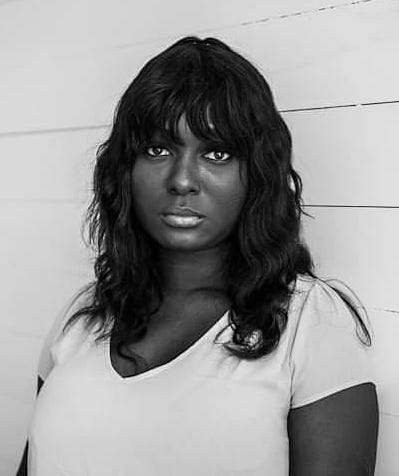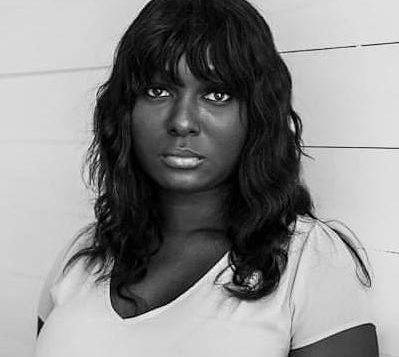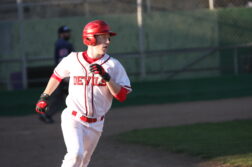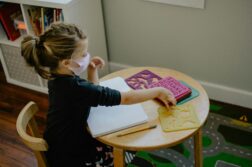I.
This is not a love story. Or a story of a child missing a father. This is a story of a father chasing a lost shadow. This is a story of a child who is not a dream come true.
II.
There are different names you can call your male parent. One is Father. Another is Daddy. Depending on your relationship with him, one might fit like a glove while the other feels like a horse swapped midstream.
I call mine Daddy because that’s what we always called him. He was the man who, during my childhood, hovered like candle wax mid-drip, ready to burn at the grazing of skin; the one I grew up learning like a map.
Da-dd-y. Although we’ve been estranged since 2016, it would be wrong to call him anything else because the image stuck in my head is who he was to me; the man who raised me.
III.
I have another father who I call Papa.
Papa has an infectious signature smile that causes everyone to smile back. Sometimes when I’m cooking, Papa walks into the kitchen for something, like a glass of water or a toothpick, and when our eyes meet, he breaks character because we both know that he’s spying on the cooking, hoping to have a bite and talk. He does a little dance while the hot, slippery fried plantain wiggles around his tongue. Papa’s presence is an ingredient in whatever food I am making. Especially the Jollof rice; his facial expressions toward each pinch of spice or ounce of water serves as a map guiding me.
Unlike Daddy, Papa doesn’t pray to a sky god. But he says “amen” whenever someone prays for him. He tells me that the reason he does this is because he believes in spiritual energy, and whatever someone believes to be true, is their truth.
Papa loves to share a glass of bourbon with me every Friday while he listens to me rant about schoolwork, the challenges with my writing, or some boy issues. Papa likes to listen to the boy stories because I struggle to talk to him about them. It is important to him that I feel like I can be vulnerable with him. Papa wouldn’t use words like “should,” but would nod to everything. He has a slow nod that indicates he’s not in support of something, like when I told him I wanted to tattoo my boyfriend’s name on my ass crack.
He has another nod to indicate he was still following the story I was telling him and was acknowledging when I arrived at a new beat.
My favorite nod is the one he does to signal he agrees with my point of view. I could be talking about how blaming only the Nigerian leaders for the country’s shortcomings wasn’t enough and that everyone needed to change from top to bottom because the rot was already within. He would pause and give me a knowing look, the one he gives whenever he wants to buttress a point of mine. And it would end in us downing our glasses, as if in celebration of our father-daughter synergy.
I watched him play Nat King Cole’s “Unforgettable” on the stereo. When the music hit a crescendo, he transformed into a one-man show. His body is made for dancing. He moves purposely, but with swagger, and he accelerates at every beat of the music. Papa dances as if dancing for a packed audience. He dances with confidence, even when no one is watching. Even when my back is turned against him, I can tell when his fingers are doing a snap or when his feet are doing the tap. I can tell when he’s humming silently to himself, and I can tell when he’s performing the words of the song with his burly body.
His body told stories of their own the way his smile usually did. His unbridled energy called out for mine to come home with him. We’d share his dance floor. No matter how hard I tried, I never was able to match his vigor and stagecraft, but it didn’t deter me from trying. And he’d flash me a smile whenever I made a signature move, as if to tell me that he loved it, as if to tell me to just have fun and that it wasn’t a competition. He’d remind me why the song remains an all-time favorite.
When I eventually underwent sex reassignment surgery in January 2018 in New York City, Papa was there; he flew all the way from Nigeria to be a hand-grab away from me. And when the anesthesia wore off and I was conscious enough to recognize him, he leaned over and whispered to me, “hey daughter.”
IV.
I imagine Daddy has his own version of me, a child he had instead of me. A boy called Bubba.
You would think Daddy coughed him out because of how similar they both are. Bubba would be one of the young leading Muslim brothers at the Ansarudeen mosque, where Daddy was the chairman of the division. Unbeknownst to all, Bubba would have a drinking problem he hides from everyone, because he has to be a perfect son.
Even in my own imagination of who I think Daddy wants me to be, I fail. He already has a flaw. Bubba drinks and gambles. Bubba prays five times a day and mutters “salaam alaikum” to every room he enters, even if it’s his own room that only he inhabits. Bubba always ends every sentence with, “by god’s grace.” But Bubba’s eyes always wander and undress all the women at asalat. Even the ones old enough to be his mother.
Still, Bubba is Daddy’s perfect son.
V.
What do you call a male parent who is no longer in your life? I don’t mean dead. Because that would mean you’re fatherless. Is there a word for a father who decides you are persona-non-grata? Ex-father, maybe? The way your boyfriend becomes your ex-boyfriend. See why I call him Daddy? That seems like a word that is immovable. Daddy is not a title. It’s an event that happened.
VI.
I was in a Manhattan restaurant in July 2016 for a friend’s birthday dinner when my friend W. asked if I heard that my family had disowned me. He said it the way you inform someone that their favorite restaurant closed down. Disappointing, but not tragic.
Before that moment, I started medical and social transition, and did an interview with an online radio I thought nobody listened to. I had jokingly even said to a friend that it probably would be listened to by five people, and I would be one of them. But that interview found its way out of the obscure network into the page of a popular Nigerian journalist, which snowballed into a viral media sensation in Nigeria. Like everyone else, Daddy found out about his daughter through the worldwide web.
My body did her thing by first being calm. Then it sprung up in jitters, like a cold shower on a limp body. It wasn’t as if I didn’t see this coming. It wasn’t the first time Daddy toyed with the idea of disowning me. All the days of my incessant running away and Grandma advising him to, and the days I heard him wondering if he made the right choice by not listening to her.
It had finally happened. My father, breaking up with me.
I went to the bathroom for a pee break with the hope of getting the tears out. Nothing. It was the reflection of me in the mirror that made my eyes cloud with coated tears. My simplistic, burgundy jumpsuit with bohemian beaded necklace and slick-back hair made for quite the view.
Looking back at me: the becoming. A flight mid-air, ready for take-off. I was the miracle that almost didn’t happen. And it broke my heart that somebody could choose to want no part of it.
I was living in New York, but was making headlines in Nigeria, because even in 2016 for Nigerians, being a trans woman was akin to being a cannibal. The headlines were brutal.
Whoever the person they plastered across the headlines was, I didn’t recognize her. I must have got lost, somewhere between the misgendering and deadnaming, between the curses in the comment sections and the pearl-and-purse-clutching.
There is a kind of death that happens when you see your image decimated in the press, when people decide who you are and tell it to themselves and other people.
It’s a nameless death, and I’m still yet to find my body.
 Noni Salma is an Award-winning screenwriter and Filmmaker whose growing up experiences in the colorful city of Lagos, Nigeria inspired her eclectic storytelling. Her works are largely women and queer led dramas and comedies. She centers them in her writing in ways that are fresh, inspiring and kicking. Her slice-of-life feature drama screenplay, Raison D’etre is a ScreenCraft Screenwriting Fellowship 2021 Finalist and her comedy pilot, Badass is a ScreenCraft Comedy Competition 2021 semifinalist and on the 2022 GLAAD list.
Noni Salma is an Award-winning screenwriter and Filmmaker whose growing up experiences in the colorful city of Lagos, Nigeria inspired her eclectic storytelling. Her works are largely women and queer led dramas and comedies. She centers them in her writing in ways that are fresh, inspiring and kicking. Her slice-of-life feature drama screenplay, Raison D’etre is a ScreenCraft Screenwriting Fellowship 2021 Finalist and her comedy pilot, Badass is a ScreenCraft Comedy Competition 2021 semifinalist and on the 2022 GLAAD list.







Discussion1 Comment
I love the way you share your story with such grace, and you write with such fluidity. You are going far, Noni. I can feel it.